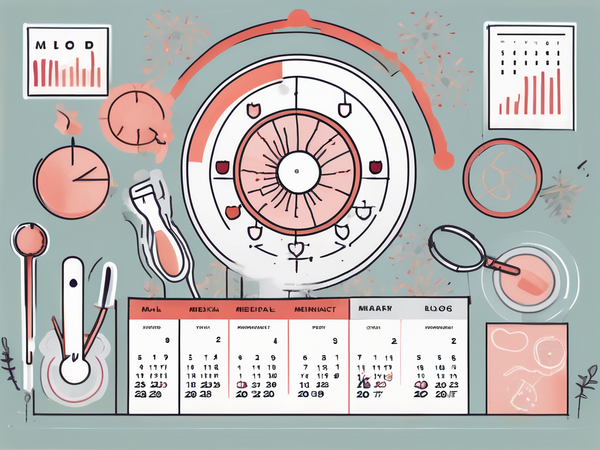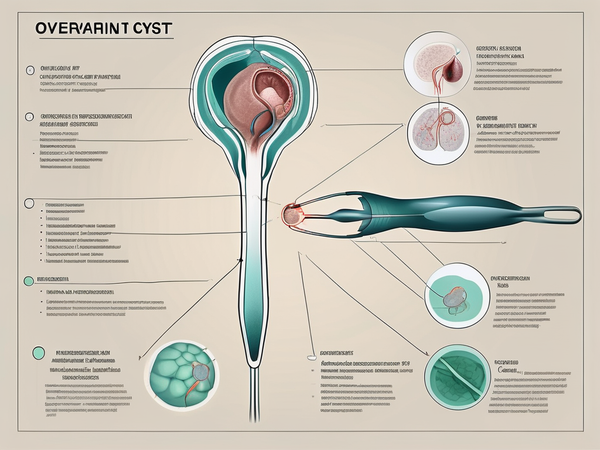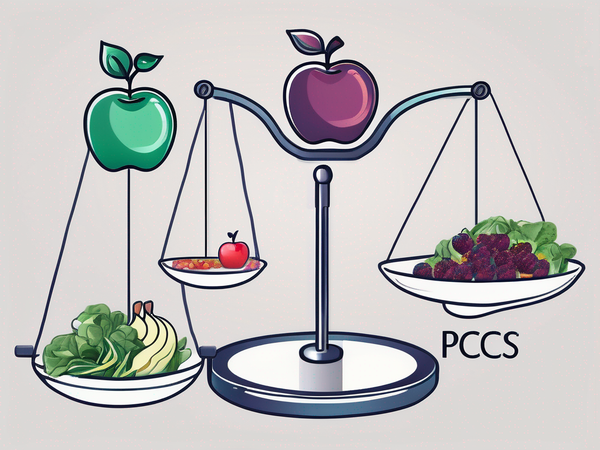Hormonal imbalance can have a significant impact on a person's well-being, affecting both their physical and emotional health. Understanding this condition is crucial in finding effective ways to manage it.
Understanding Hormonal Imbalance
Hormonal imbalance arises when there is an irregularity or disruption in the production, release, or functioning of hormones in the body. As chemical messengers, hormones play a vital role in various bodily functions, such as metabolism, growth and development, reproduction, and mood regulation.
When the delicate balance of hormones is disturbed, it can lead to a cascade of effects throughout the body, impacting both physical and mental well-being. Hormones are produced by various glands, including the pituitary, thyroid, adrenal, and reproductive glands. Any dysfunction in these glands can result in hormonal imbalances.
The Role of Hormones in the Body
Hormones act as catalysts, regulating physiological processes and maintaining overall homeostasis. They travel through the bloodstream, binding to specific receptors to initiate certain actions in target organs or tissues. For instance, estrogen and progesterone are crucial hormones in menstruation and pregnancy, while insulin regulates glucose levels in the body.
Moreover, hormones not only influence physical health but also play a significant role in mental and emotional well-being. For example, serotonin, often referred to as the "feel-good" hormone, affects mood, appetite, and sleep. Imbalances in serotonin levels can lead to conditions such as depression and anxiety.
Common Symptoms of Hormonal Imbalance
When hormones become imbalanced, individuals may experience a wide range of symptoms. These can include fatigue, weight gain or loss, mood swings, irregular periods, hot flashes, hair loss, acne, and sleep disturbances. These symptoms can vary in severity depending on the individual and the specific hormones affected.
It is essential to recognize the signs of hormonal imbalance early on to seek appropriate medical intervention. Hormonal imbalances can be caused by various factors, including stress, poor nutrition, underlying medical conditions, and certain medications. Consulting with a healthcare provider can help in diagnosing the root cause of hormonal disruptions and developing a tailored treatment plan.
Causes of Hormonal Imbalance
Several factors can contribute to hormonal imbalance:
Lifestyle Factors
Lifestyle choices can have a significant impact on hormone levels. Factors such as poor diet, lack of exercise, chronic stress, inadequate sleep, and exposure to toxins can disrupt hormone production and regulation. Adopting a healthy lifestyle, including regular exercise, proper nutrition, stress management techniques, and sufficient sleep, can help prevent or reduce hormonal imbalances.
Furthermore, the modern sedentary lifestyle prevalent in many societies can also play a role in hormonal imbalances. Prolonged sitting and lack of physical activity can lead to weight gain and metabolic issues, which in turn can affect hormone levels. Incorporating regular movement throughout the day, such as taking short walks or stretching breaks, can help mitigate these effects and support hormonal health.
Medical Conditions
Certain medical conditions can disrupt hormonal balance. Polycystic ovary syndrome (PCOS), thyroid disorders, diabetes, adrenal gland disorders, and certain types of cancers can all impact hormone levels. Identifying and treating these underlying medical conditions is essential to restoring hormonal balance.
In addition to the mentioned medical conditions, hormonal imbalances can also be triggered by other factors such as genetic predispositions and certain medications. Understanding the potential side effects of medications and discussing alternative options with healthcare providers can be crucial in managing hormonal health. Moreover, genetic testing and counseling can provide valuable insights into individual susceptibility to hormonal disruptions, allowing for personalized preventive strategies.
The Connection Between Magnesium and Hormones
Magnesium, an essential mineral, plays a crucial role in hormone regulation and overall health. It is involved in over 300 biochemical reactions in the body, including hormone production, metabolism, and cellular function.
Furthermore, magnesium is not only vital for hormone regulation but also for maintaining proper nerve function and muscle tone. It acts as a cofactor for enzymes involved in energy production and protein synthesis, highlighting its significance beyond hormonal balance.
Magnesium's Role in Hormone Regulation
Magnesium helps regulate the production and release of hormones, such as insulin, thyroid hormones, estrogen, and progesterone. It also supports the function of the adrenal glands, which produce hormones that help manage stress.
In addition to its direct impact on hormone production, magnesium plays a key role in DNA and RNA stability, which are essential for proper cell function and replication. This further underscores the intricate connection between magnesium and overall physiological well-being.
How Magnesium Deficiency Affects Hormones
A deficiency in magnesium can disrupt hormone production and function. Studies have shown that low magnesium levels are associated with increased insulin resistance, reduced thyroid hormone levels, and imbalances in estrogen and progesterone. Correcting magnesium deficiency through supplementation or dietary changes may help restore hormonal balance.
Moreover, magnesium deficiency has been linked to an increased risk of chronic conditions such as cardiovascular disease and osteoporosis, emphasizing the far-reaching consequences of inadequate magnesium levels in the body. Ensuring sufficient magnesium intake through a balanced diet rich in leafy greens, nuts, seeds, and whole grains is crucial for maintaining optimal hormonal health and overall well-being.
Using Magnesium for PMS Relief
Premenstrual syndrome (PMS) affects millions of women, causing physical and emotional symptoms before menstruation. Magnesium supplementation has shown promise in alleviating PMS symptoms.
Many women experience PMS symptoms that can range from mild to severe, impacting their daily lives and overall well-being. From irritability and fatigue to bloating and headaches, the effects of PMS can be debilitating. This is where magnesium comes in as a potential natural remedy to help ease these discomforts.
The Science Behind Magnesium and PMS Relief
Research suggests that magnesium supplementation can help reduce PMS symptoms such as bloating, mood swings, breast tenderness, and menstrual pain. Magnesium may enhance serotonin levels, improve blood flow, and alleviate muscle tension, offering relief during this challenging time of the month. By ensuring an adequate intake of magnesium, women may support their overall health and potentially reduce the severity of PMS symptoms.
Recommended Dosage and Usage
The recommended daily intake of magnesium for adults is around 310-420mg, depending on age and gender. Magnesium supplements are available in different forms, including magnesium citrate, glycinate, and oxide. It is advisable to consult a healthcare professional before starting any supplementation regimen.
When choosing a magnesium supplement, consider factors such as absorption rate and potential side effects. Some forms of magnesium, like magnesium oxide, have higher levels of elemental magnesium but may cause gastrointestinal issues in some individuals. On the other hand, magnesium glycinate is known for its high bioavailability and is gentle on the stomach, making it a preferred choice for many seeking PMS relief.
The Impact of Hormonal Imbalance on the Body
Hormonal imbalance can have profound effects on the body, affecting both physical and psychological well-being.
Understanding the intricate balance of hormones in the body is crucial for maintaining overall health. Hormones act as chemical messengers, regulating various bodily functions such as metabolism, growth, mood, and reproduction. When this delicate balance is disrupted, it can lead to a cascade of effects throughout the body.
Physical Effects of Hormonal Imbalance
Physical manifestations of hormonal imbalance may include weight gain or loss, changes in appetite, fatigue, headaches, increased hair growth, or hair loss, skin changes, and menstrual irregularities. These symptoms can vary in severity and may impact daily life and overall well-being. Addressing these physical manifestations promptly through lifestyle changes, medication, or hormone therapy is essential to prevent further complications.
Furthermore, hormonal imbalance can also affect other bodily systems, such as the immune system and cardiovascular system. Research has shown that imbalances in certain hormones, like cortisol and thyroid hormones, can weaken the immune response and increase the risk of cardiovascular diseases. Therefore, maintaining hormonal balance is not only vital for immediate symptoms but also for long-term health.
Psychological Effects of Hormonal Imbalance
Imbalances in hormones can also impact mental health. Mood swings, irritability, anxiety, depression, and difficulty concentrating are common psychological symptoms experienced by individuals with hormonal imbalances. These psychological effects can significantly impact quality of life and relationships. Seeking psychological support alongside medical intervention is essential to managing the emotional impact of hormonal imbalance.
Other Ways to Manage Hormonal Imbalance
In addition to considering magnesium supplementation, there are various other strategies to manage hormonal imbalance:
- Eating a balanced diet rich in whole foods, fruits, and vegetables to support overall health and hormone production.
- Engaging in regular exercise to promote hormonal balance and reduce stress.
- Reducing stress through activities such as meditation, yoga, deep breathing exercises, and engaging in hobbies.
- Getting sufficient sleep to support hormone regulation and overall well-being.
- Limiting exposure to hormone-disrupting chemicals found in certain plastics, pesticides, and personal care products.
Conclusion
Hormonal imbalance can have a significant impact on physical and emotional health. Understanding the role of hormones, the causes of hormonal imbalance, and the link between magnesium and hormones can provide valuable insights into managing this condition. While magnesium supplementation may offer relief, it is essential to adopt a holistic approach that includes lifestyle changes, medical intervention, and psychological support for comprehensive care. By taking active steps to address hormonal imbalance, individuals can enhance their overall well-being and regain control over their health.




























